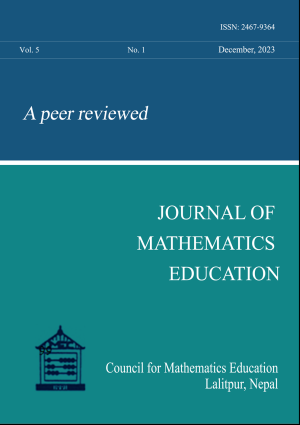Digital Devices Used in a Secondory School: A Case Study of Access and Use in Learning Mathematics
DOI:
https://doi.org/10.3126/jme.v5i1.60859Keywords:
Pandemic Disruptions, Digital Disparities, Math-Tech Integration, Urban-Rural Divide, Matrix in EducationAbstract
This research investigates the types of digital devices used by students at a Secondary School in Kiritpur Municipality, Nepal, and their relationship with grade level, focusing on integrating technology in teaching mathematics. The case is urban school phenomena. A survey was conducted with 420 students, using a questionnaire for data collection. Statistical tools used in analysis included univariate (frequency and percentage) and bivariate (Chi-Square) methods. Findings show that mobile devices are the most widely used for attending online classes. Around 25% of students lack access to necessary technology at least mobile too. Attendance rates vary between lower and higher grade levels. Importantly, the study reveals limited technology integration at an urban School, with teachers lacking awareness of how to effectively adapt and incorporate technologies in the classroom, specifically for mathematics teaching. These results underscore the need to improve digital device availability and the types for teaching science, mathematics like subjects, which demand dynamic, interactive tools use. Similarly, access to devices particularly at the lower secondary level is lower, and over reliance on parents' device needs reducing reliance on parental devices. Additionally, there is a call for enhanced professional development to support teachers in integrating technology into mathematics instruction. Addressing these challenges will contribute to enhancing the learning experience and overall effectiveness of technology integration in the classroom.




